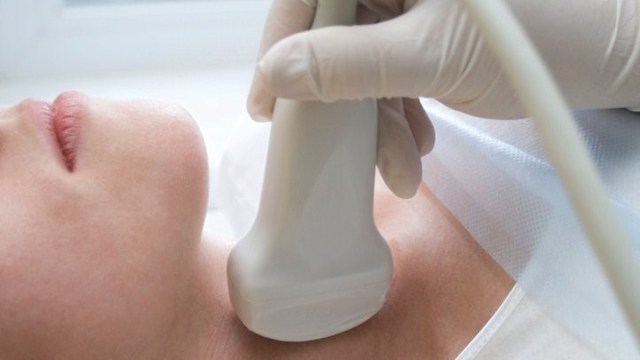It is very important to correctly diagnose hypothyroidism. If a patient truly has hypothyroidism, they need to go on thyroid medicine; otherwise, their condition will worsen. On the other hand, if they do not have hypothyroidism and are treated with thyroid medicine, their own thyroid will shut down and it will be very hard to get off thyroid medicine. If you have a healthy gland, it is much better not to take thyroid medicine, as your own gland is able to respond much more dynamically to its needs and put out the right amount of thyroid hormone at the right time. However, if you have a sick gland then it is best to take exogenous thyroid medicine.
Dr. Friedman spends a lot of his time trying to decide who should and who should not go on thyroid medicine. The issue comes into play when the TSH, which goes up with hypothyroidism, is on the upper range of normal or even slightly elevated and the free T4 and free T3 are normal. The range of TSH is quite broad and it is controversial about what should be the upper limit of the normal range. Most people would say that if the TSH is above 7, the patient should go on thyroid medicine and if the TSH is probably below 3, the patient should not. However, there is a gray zone between 3 and 7 where it is unclear whether the patient should start thyroid medicine or not. Some of this has to do with symptoms, but the most important test to determine this is a test called the TPO antibody. TPO antibody stands for thyroid peroxidase antibody and this is a marker for Hashimoto hypothyroidism. By far, the most common reason for hypothyroidism is Hashimoto's and in fact, if you do not have the TPO antibody and you did not have prior surgery or radiation to the thyroid, it is unlikely that you truly have hypothyroidism.
Therefore, Dr. Friedman uses the TPO antibody to determine who with a high-normal TSH or slightly elevated TSH should go on thyroid medicine. If the TPO antibody is positive, most of the time Dr. Friedman will put the patient on thyroid medicine. Sometimes, if the patient has a lot of symptoms of hypothyroidism, has a goiter and a positive TPO antibody, even with a normal TSH, Dr. Friedman may put somebody on a low dose of thyroid medicine, as this may be helpful. On the other hand, if the TPO antibody is negative, you basically have a healthy gland and most likely, the patient should not go on thyroid medicine.
There are some exceptions to this rule. About 95% of the people with Hashimoto's have a positive TPO antibody but about 5% do not. These people with Hashimoto's but a negative TPO antibody will often have characteristics of Hashimoto hypothyroidism on their ultrasound, including an enlarged thyroid that is hypervascular and somewhat nodular. When Dr. Friedman palpates a thyroid gland in Hashimoto's, it also feels slightly enlarged and nodular as well. Thus, if a patient has a normal or high normal TSH and negative TPO antibody and an ultrasound consistent with Hashimoto's, Dr. Friedman may put the patient on thyroid medicine.
There is some confusion about the role of anti-thyroglobulin antibodies in diagnosing
Hashimoto's. A large study using a national database called the NHANES database showed that only the TPO antibodies correlated with hypothyroidism and not anti-thyroglobulin antibodies. The confusion seems to come that before the TPO antibody was identified, doctors used a test called an anti-microsomal antibody that was not as specific for Hashimoto's as the TPO antibody. When that was the only test available for Hashimoto's, an anti-thyroglobulin antibody was helpful because it could be used in complement with the anti-microsomal antibody to diagnose Hashimoto's. However, now that the TPO antibody is standardized and is a very sensitive and specific test for Hashimoto’s hypothyroidism, there is no reason to get a anti-thyroglobulin antibody unless the person has thyroid cancer, in which it is a useful test. To summarize, a TPO antibody should be ordered in patients with a high-normal TSH when there is concern if the patient has Hashimoto's hypothyroidism. The anti-thyroglobulin antibody is not helpful in this circumstance.
For more information on Dr. Friedman's endocrinology practice, please go to www.goodhormonehealth.com.






Add a CommentComments
There are no comments yet. Be the first one and get the conversation started!